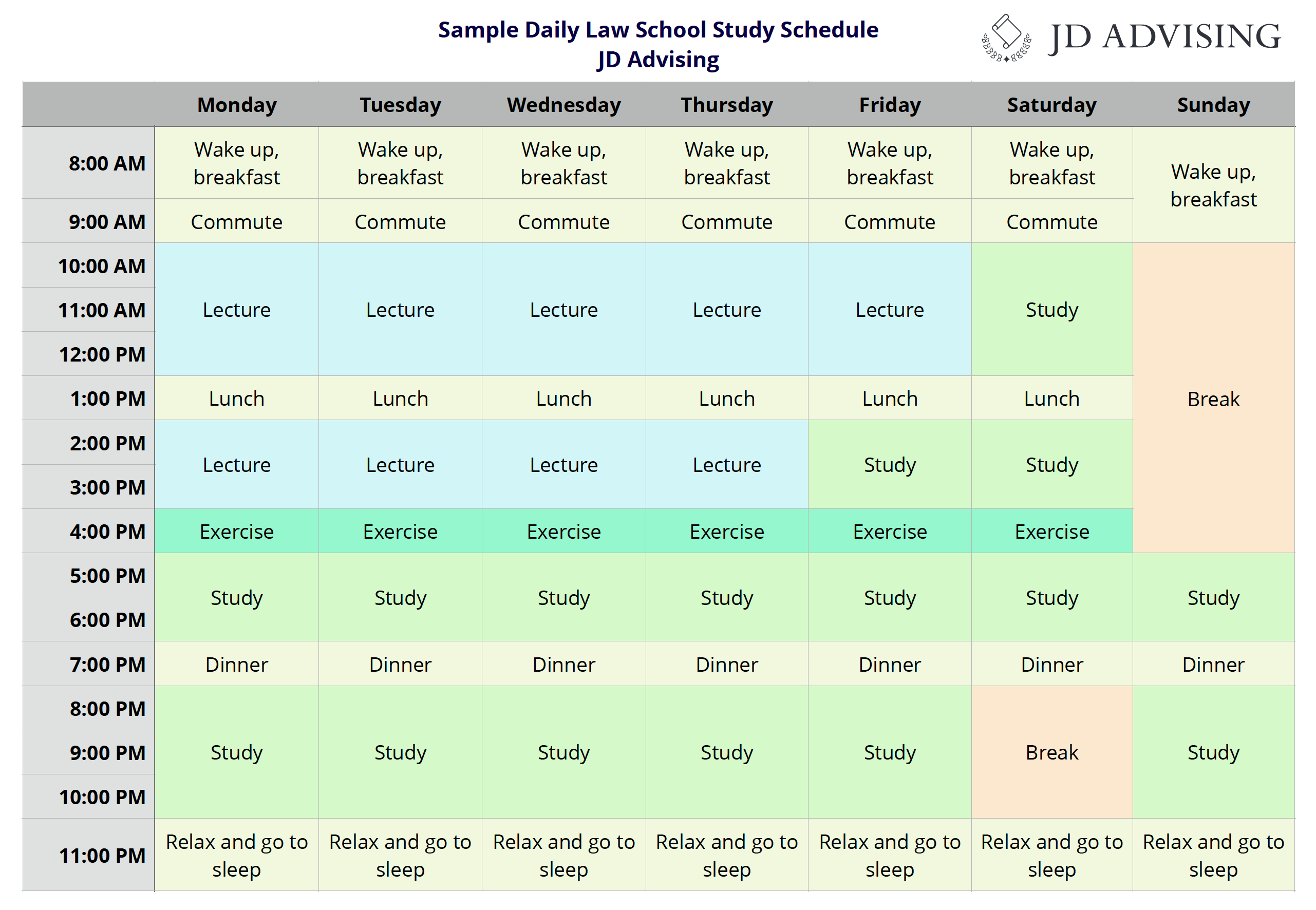 2. Fill in your daily obligations and tasks. Some necessary tasks might include:
2. Fill in your daily obligations and tasks. Some necessary tasks might include:
A good law school study schedule can make a big difference in your grades. A good study schedule can also save you stress, give you a sense of control and lower your anxiety during law school. If you are looking for a way to improve your law school grades and lower your stress level, consider creating and following a hand-crafted study routine.
Even better, join our FREE law school prep course here ! We discuss how to create a study schedule in great detail!
There are two steps necessary to plan your ideal study routine: First, before your semester starts, choose when and where you will study. Second, each week of the law school semester, plan what you will study.
You can complete step one as soon as you have your class schedule. The best way to do this is to have a blank weekly calendar in front of you with all seven days of the week on it. Make sure that you have a lot of space to write under each day. It helps if you divide your time into half-hour increments. Start from the time you wake up until the time you go to bed.
After you have your blank weekly schedule in front of you, complete the following steps:
It is important to go to every class in law school!
 2. Fill in your daily obligations and tasks. Some necessary tasks might include:
2. Fill in your daily obligations and tasks. Some necessary tasks might include:You should also include:
An example of a law school study schedule might look like this:

The above schedule is for someone who studies best in the afternoon and evening, rather than in the morning. The schedule allocates about several hours per day to studying. Your study schedule may look completely different.
Now that you know when you will study, it will be automatically programmed in your day! So, how do you know where to begin when you sit down to study?
Sit down once a week for an hour or so and prepare a to-do list for each day. The list should contain everything that you want to get done each day for the whole week. It is best to incorporate planning your weekly to-do list right into your study schedule, ideally at the beginning of the week (Sunday or Monday). This will make it easy to sit down and study because you will have a plan in place. Rather than just saying, “I am going to study for two hours,” you will have an actual checklist of things to do.
When you are making your list of things to do, be as specific as you can. Here are some tasks that you should include in your list.
By automatically programming studying into your day, you will be sure you are studying enough. By making to-do lists, you will know what to do when you sit down to study and you will minimize the risk of not getting everything done or becoming distracted. We discuss creating a daily to-do list more next.